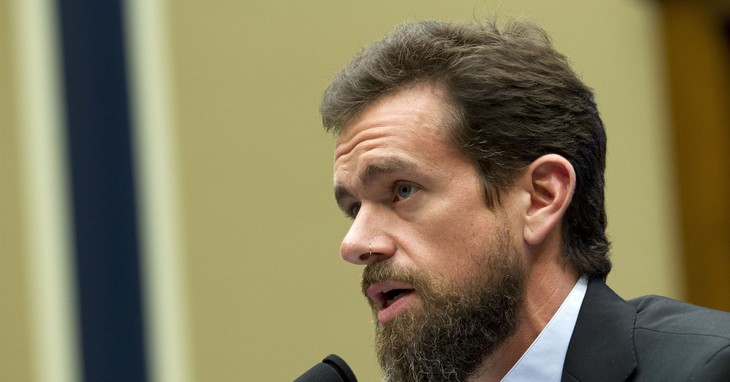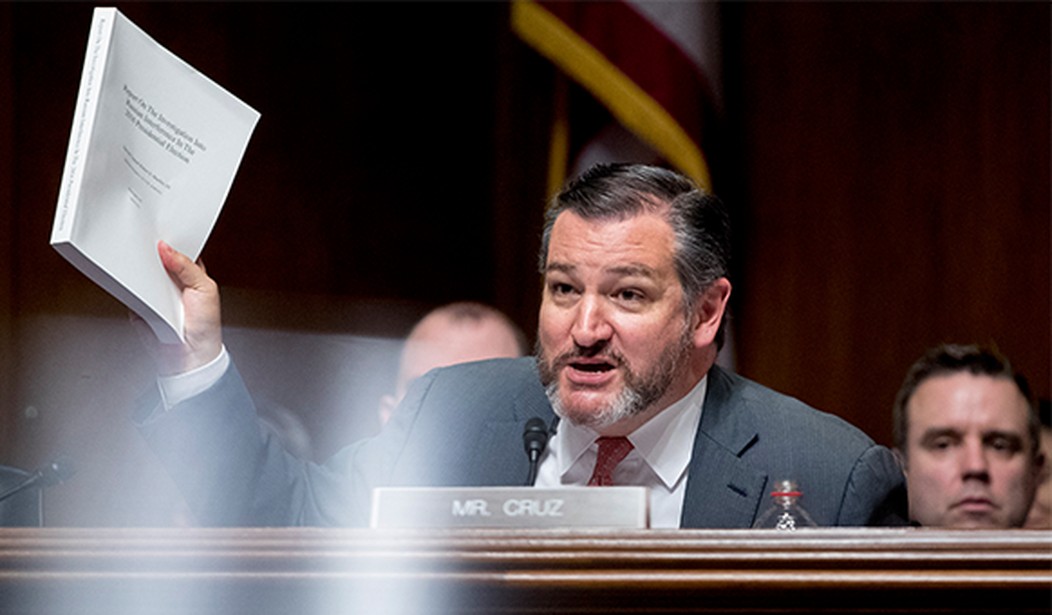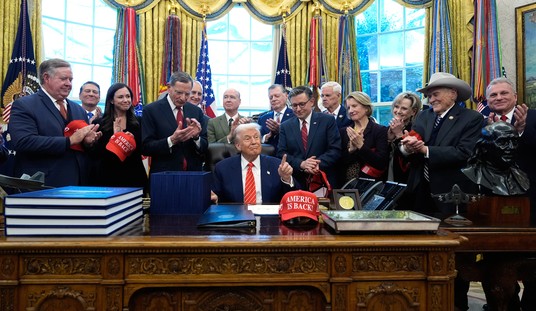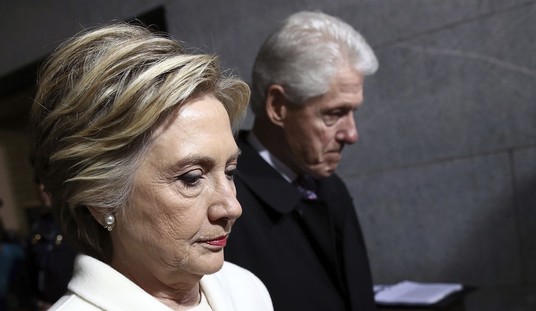Based on how he pinned down the CEO this could shift the landscape for social media platforms.
Yesterday on the Hill the Senate heard testimony from the leaders of two of the largest social media outlets, Mark Zuckerberg from FaceBook, and Jack Dorsey from Twitter. At issue was the intent to get explanations on some of the recent decisions and maneuvers made by the platforms regarding the silencing of content, specifically the banning of any news regarding the Hunter Biden laptop story and the suspension of the Twitter account of one of this country’s largest newspapers.
During the day’s comments and questions it was evident many on the Democrat side of the aisle saw little to be concerned about, a detail that Senator Ted Cruz noted in his opening remarks. Cruz directly aimed at his Democrat counterparts in the chamber, stating flatly how they used to be defenders of the free press and the First Amendment but today appear perfectly at ease with the muzzling of news outlets and the squelching of certain voices on social platforms.
At issue in these discussions is the legal code that governs publications and how they disseminate content. Specific to this is the now well-known Section 230, which essentially is where the websites are shielded from greater legal exposure. The crux of this legislation is that these platforms evade more oversight by avoiding being called ”publishers’’. Classified as mere forums where others can post their own content excuses these outlets from a large measure of responsibility.
However if these outlets, through their practice of editing and controlling the content on their sites, are shown to actually be executing editorial practices then they could fall under the focus of publisher laws — something they have steadfastly been fighting to prevent. Senator Cruz yesterday may have just moved these sites under that very purview.
After his opening Cruz leans into Jack Dorsey about this very publishing distinction. He leads Jack into this wilderness by first getting him to commit to a definition. ‘’So what is a publisher?’’, he asked Dorsey directly. The Twitter publisher could almost be seen goose-stepping while walking on eggshells.
”Uh…an entity that is publishing under editorial guidelines and decisions.’’ Cruz referred to the statute, Section 230, explaining how Dorsey’s response was a contradiction of the definition found in the law. It defines a publisher as any entity that is responsible – in whole, or in part — for the creation or development of information provided through the internet or computer service. If it can be shown that Twitter or FaceBook are editing content specifically, this will see them reclassified as publishers.
The outlets have long rested on a contortion, that what they are doing is enforcing rules of standards and decency on their forums, not editors of content. This is something that Senator Cruz focused on in his questioning of Dorsey.
”Was Twitter being a publisher when it censored the New York Post?’’ You could then see Jack attempting to worm out of the charge, attempting to lay the responsibility on the NY Post as a violation of conduct policies. He says after Twitter takes action on enforcement, ”People choose to commit to those policies and those terms of service.’’ What he is attempting to say is the suspended parties are free to comport with policy, they are not forced to alter their content. Common sense defies seeing this as a distinction, considering the only option to have an account remain suspended.
Cruz then brought up past instances of hacked material that had been distributed on Twitter without instigating takedown orders from the provider, namely the New York Times being illegally in possession of President Trump’s tax records, and the Edward Snowden data cache. This was to set up the prospect of Twitter being selective in how it polices what it deems restricted content, which is an editorial decision. There was no difference to be seen in say, the Times and its illegal possession of tax records, and the NY Post information on Hunter Biden’s laptop.

Dorsey however had to find a difference in order to explain the decision to silence only one party in these examples. ‘’In the New York Times case,’’ explained Dorsey, ‘’we interpreted that as reporting about the hacked material, not distributing hacked material.’’ This is a distinction without a difference. The New York Post was doing nothing different than the New York Times had done; they both were in possession of content with a questionable provenance. In truth, as has been established, the laptop contents were legally obtained, via the repair shop owner’s rightful possession of the computer. The Times meanwhile was in violation of statutes in possessing and distributing personal tax records.
Yet Twitter elected to only silence the more legal of these examples. Cruz established further this reality. He brought up the case of Politico’s Jake Sherman, who was compiling information on the New York Post story, and after sending out a series of tweets he found his account locked for one post that was retweeting the story from the NY Post. This would be a perfectly equal act based on Dorsey’s own explanation — Sherman was not distributing ‘’hacked’’ material, he was reporting on it. Yet Sherman found his account locked by Twitter.
Cruz bore in on this specific example. It was only after Jake Sherman deleted his particular tweet referencing the story from the Post that his account became unlocked. ‘’When Twitter is editing, and censoring, and silencing the post…and Politico…is Twitter behaving as a publisher, when it’s deciding which stories reporters are allowed to write and publish, and what stories they are not?’’
Jack tries to weasel out of this responsibility by stating Sherman’s account was not suspended, it had been locked, over an interpreted violation of Twitter standards for content. ”It can be unlocked when you remove the offending tweet,’’ was Dorsey’s explanation. Cruz was not buying it. ”Your answer is always, ‘Well once we silence you we can choose to allow you to speak’ — but you are engaged in publishing decisions.’’
Next Senator Cruz moved to the subject of voter fraud designations and the way Twitter addresses any discussions on the topic. Dorsey attempted to say that on the matter Twitter is merely linking to a broader conversation on the topic. Cruz stopped him in his tracks, citing a page that his website had specifically drawn up that stated voter fraud is exceedingly rare in the United States. This is where more trouble rests for the web sites.
”That’s not linking to a broader conversion, that’s taking a disputed policy position — and you are a publisher when you’re doing that.’’ It is right here where the change in protections for these platforms could derive. ”You’re entitled to take a policy position,” said Cruz, ”but you don’t get to pretend you are not a publisher and get a special benefit under Section 230 as a result.’’
If congress manages to shift the exposure of these social media websites it could very well be a direct result of this exchange seen yesterday.















Join the conversation as a VIP Member